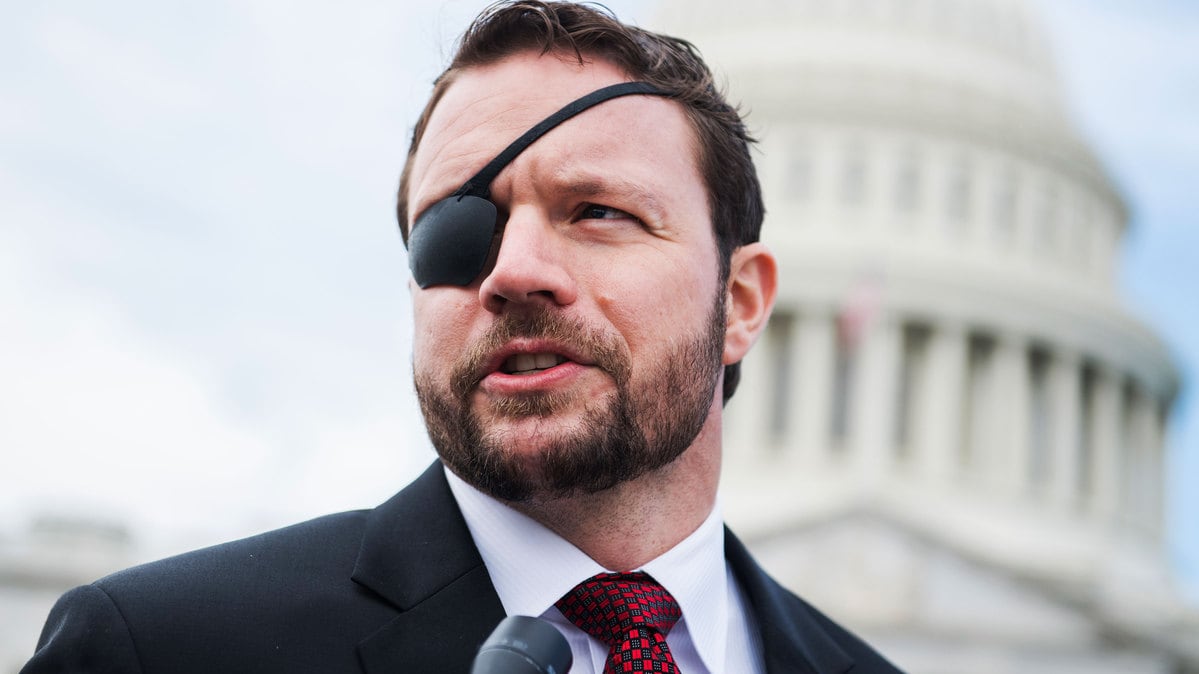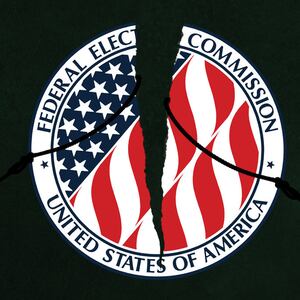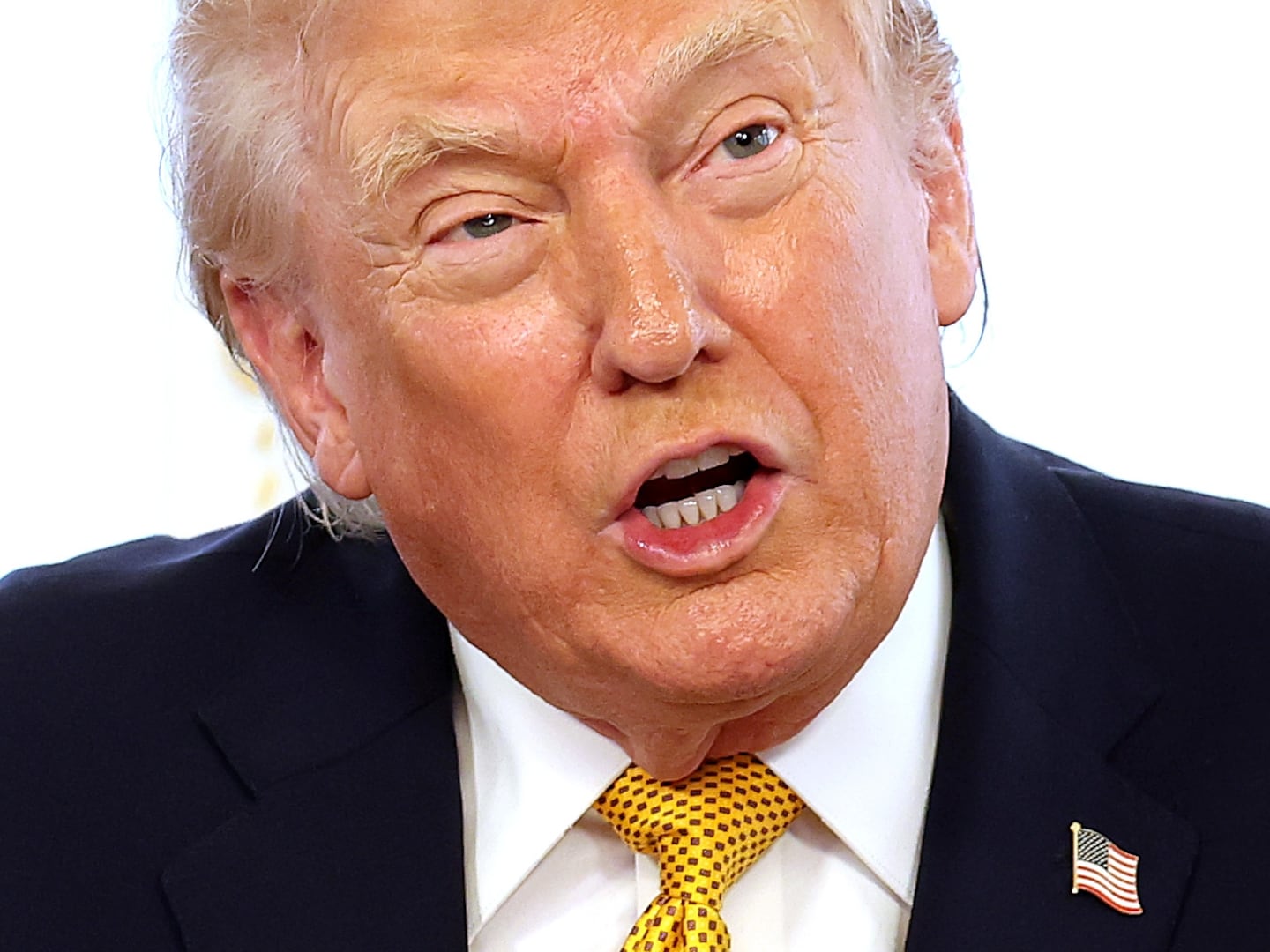Rep. Dan Crenshaw (R-TX), a leading Republican fundraiser who has worked to build a national political profile, has been hit with a hefty fine for violating federal campaign finance rules.
On Friday, officials at the Federal Election Commission disclosed they had fined Crenshaw’s campaign committee $42,000, after the campaign failed to properly return more than $220,000 in illegal campaign contributions.
The hefty penalty—about 20 percent of the amount in the violation—came as part of a conciliation agreement the Crenshaw campaign signed with the FEC on Nov. 2, according to the documents. Curiously, two of the Republican commissioners on the FEC’s bipartisan six-member board dissented from the decision, the filings show, even though the campaign itself had agreed to the settlement.
FEC investigators discovered the violations in the course of a routine review of campaign finance filings.
According to the general counsel’s report, the agency found “reason to believe” that the Crenshaw campaign and its treasurer, Paul Kilgore, violated federal law by “knowingly accepting excessive and prohibited corporate contributions” totaling $223,460 during the 2020 election.
That cycle, Crenshaw—one of the top GOP fundraisers in the House—pulled in $19.5 million. As of Oct. 19, he had raised $15.7 million for the 2022 midterms.
The money came from 125 individuals, two PACs, four corporations, and three limited liability companies, the FEC said. The prohibited corporate contributions included gifts from law firms, real estate entities, and a wealth management company, according to FEC notices.
The campaign appears to have drawn the stiff fine after failing to return the contributions in a timely manner. In fact, more than a year and a half after the FEC first flagged the violations, Crenshaw still hadn’t released all the money.
The FEC sent the first of four notices in October 2020, and in December of that year the campaign promised it would either return or re-designate the unlawful contributions. But the vast majority of the refunds and re-designations—more than $207,000 worth—were returned “between 115 and 612 days late,” well outside the 60-day grace period, according to the report. As of this May, the campaign still hadn’t returned $3,216.50.
The Crenshaw team says they have now disgorged all the money, chalking the delay up to “human error”—without further explanation, per the report—and vowing to implement new undefined “internal controls” to prevent a repeat.
The Texas Republican has signaled openness to bipartisan campaign finance reform. In 2020, the year he accepted the illegal contributions, Crenshaw teamed up with Rep. Katie Porter (D-CA) to introduce a bill that would crack down on so-called “scam PACs.” (That same year, Crenshaw failed to properly disclose stock trades made at the onset of the COVID pandemic.) They re-upped the legislation in August.








